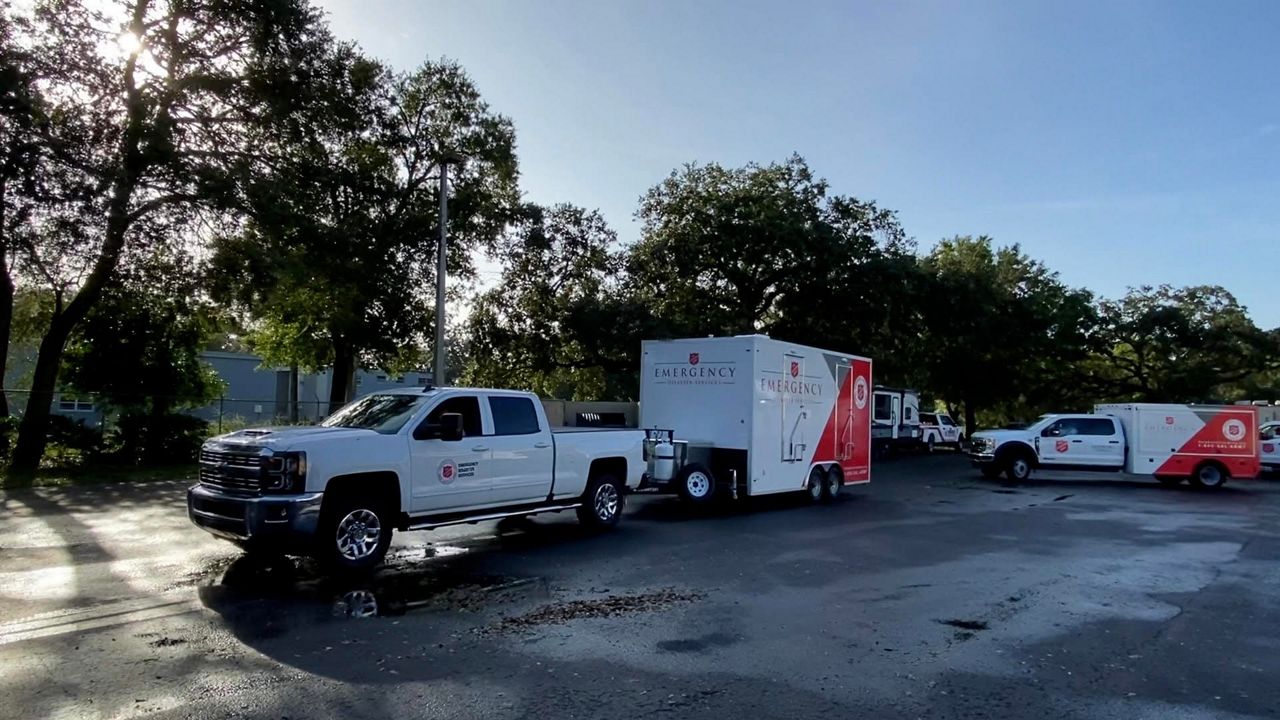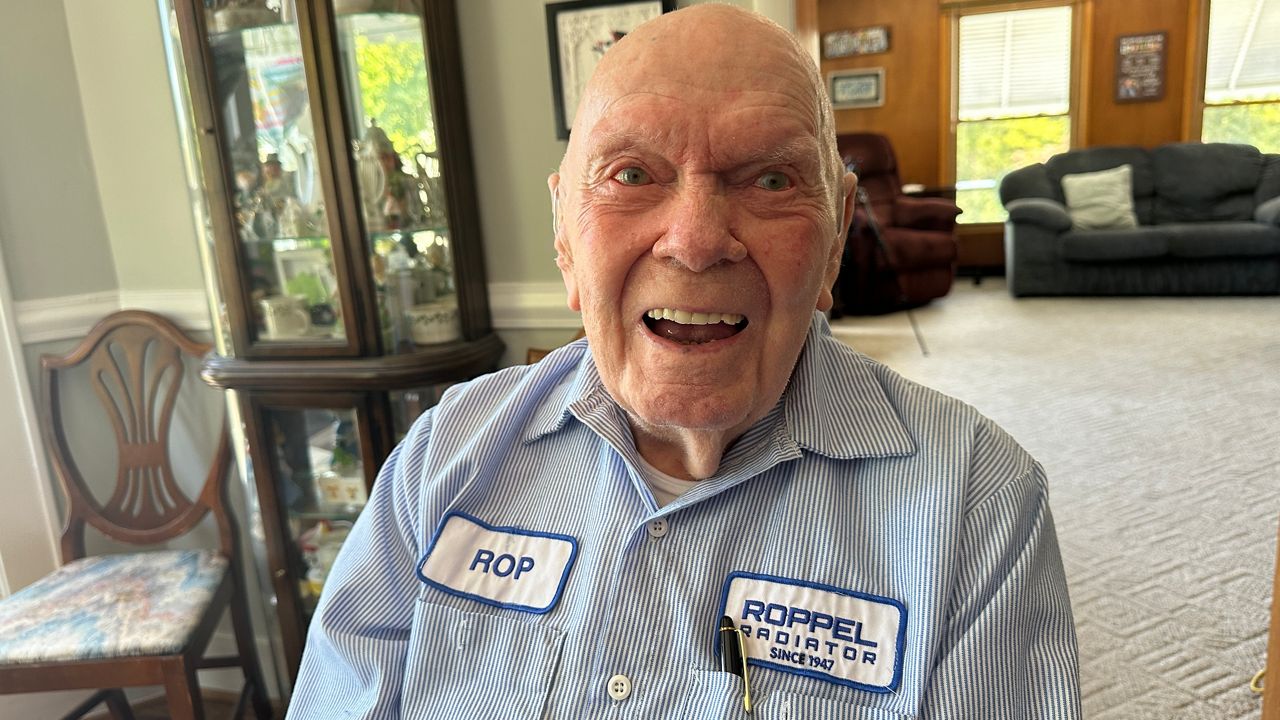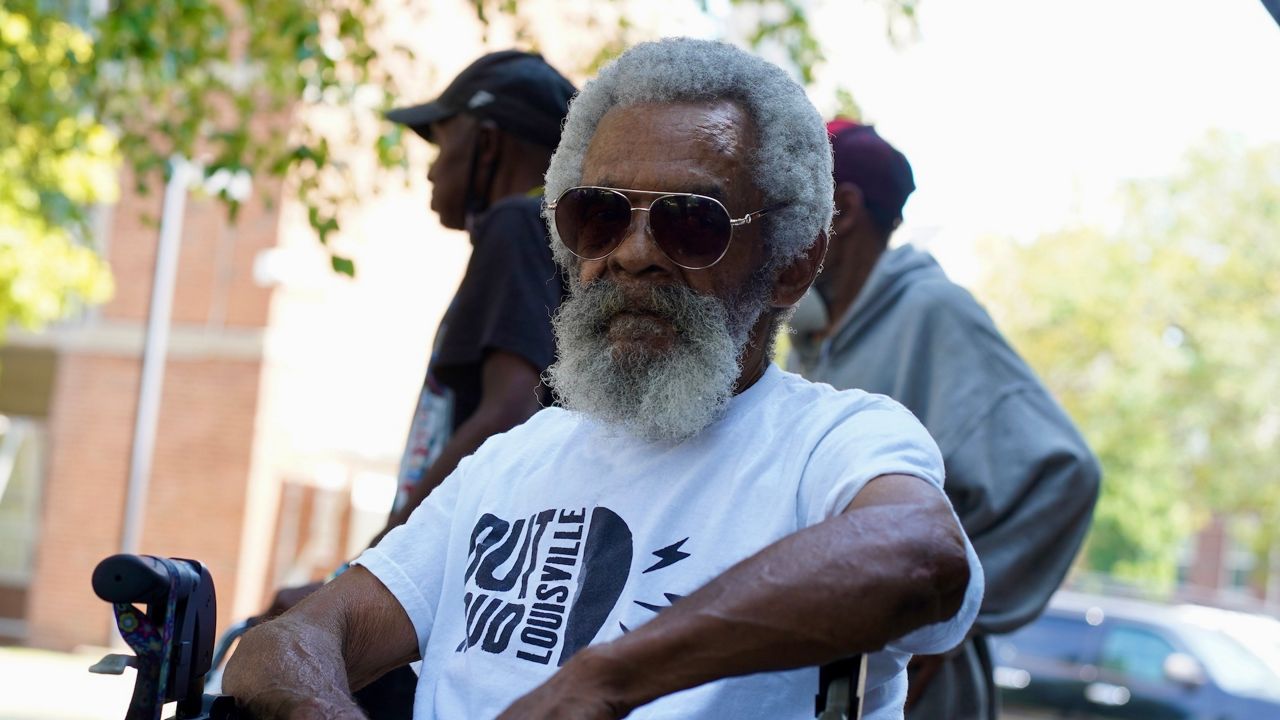LOUISVILLE, Ky. — According to data from the International Association of Fire Fighters (IAFF), occupational cancer caused 65% of career firefighter line-of-duty deaths from Jan. 1, 2002, through Dec. 31, 2021.
What You Need To Know
- There are more than 300,000 firefighters in the U.S.
- Occupational cancer caused 65% of career firefighter line-of-duty deaths from Jan. 1, 2002 through Dec. 31, 2021
- James Cripps, head manufacturing administrator at UofL Health's Brown Cancer Center, said firefighters are getting cancer at a higher rate than the public
- He was awarded one of the 2024 Outstanding Community Engagement Awards for teaching firefighters throughout Kentucky about occupational cancer and mitigation strategies
James Cripps, head manufacturing administrator at UofL Health's Brown Cancer Center, was a firefighter for more than a decade. But after going back to school and knowing other firefighters who had died due to cancer, he saw there was a need for more work.
“I had a couple of friends that had died from cancer, and we've known for about a decade now that a lot of the cancers that firefighters are facing (are) due to occupational exposure," Cripps said.
Cripps said firefighters are getting cancer at a higher rate than the public, and it's why he gives educational classes to firefighters all throughout Kentucky, providing tips on how they can limit their exposure and chances of getting cancer.
Fern Creek Fire and EMS Capt. Chris Kurtz said he has been a firefighter for 16 years. Only eight years ago, his department adopted some practices to reduce those risks.
“(Cripps has) got a pretty good analogy," Kurtz said. "(It's) like a scale; you keep adding something to the scale, eventually, it's going to tip. Hopefully, by us trying to take away as much from the scale as we can, it will kind of reap the results that we'd like to see.”
Both Kurtz and Cripps said they believe practices such as using wipes that remove debris and heavy metals from their skins help, adding they'll evolve with time to protect first responders when needed most.
“Us protecting them allows them to also protect us as the community and do their jobs as well," Cripps said.
Cripps added he hopes to educate firefighters to help reduce the risks of occupational cancer. He was awarded one of the Outstanding Community Engagement Awards 2024 for teaching firefighters throughout Kentucky about occupational cancer and mitigation strategies.
Any fire departments interested in a prevention training can contact Cripps at james.cripps@louisville.edu or through the Colon Cancer Prevention Project.










